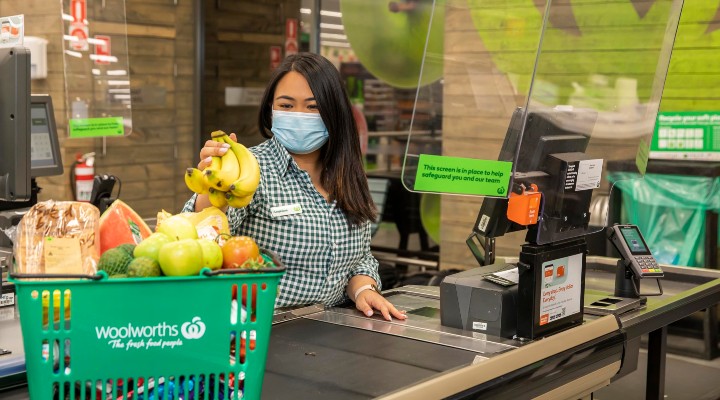Woolworths Group boosted its sales by 9.2 per cent to $60.85 billion last financial year, with e-commerce revenues up 39 per cent to $6.26 billion.
In its results announcement for the year to June released today, the grocery retailer reported EBIT of $2.69 billion, down 2.7 per cent year on year, and a net profit attributable to shareholders of $1.514 billion, up $10 million on year.
CEO Brad Banducci said an “extremely challenging operating environment” had resulted in a financial performance that was below aspirations for the year, citing supply chain disruptions, product shortages, team absenteeism and flooding which had led to an “inconsistent customer experience”. However, he said he was proud of how Woolworths staff continued to care for its customers and each other and said an ongoing resilience had delivered a strong Christmas and an improved trading momentum during the second half of the year.
“I am confident that, as we enter F23 with a renewed sense of purpose, we will be able to navigate ongoing uncertainties and challenges to deliver for all of our stakeholders,” he said.
By division, the core Woolworths retail business improved sales by 4.3 per cent, driven by a 33.6 per cent boost online, with second-half sales up 5.5 per cent.
Big W sales fell by 3.3 per cent for the year to $4.43 billion, with EBIT plunging 68.2 per cent to $55 million. The company said trading was impacted by multiple stores being closed for an extended period due to Covid restrictions. Growth recovered strongly during the second half, with fourth-quarter sales up by 11.9 per cent.
New Zealand challenges
Across the Tasman, Woolworths Group’s New Zealand business (trading as Countdown) experienced a “very challenging” second half due to the impact of the Covid Omicron strain which led to movement restrictions and interrupted the supply chain.
Sales for the year rose by 5.8 per cent, but during the second half growth was 3.1 per cent and in the fourth quarter just 2.3 per cent. That, together with increased Covid-related costs, saw the division’s EBIT fall by 12.5 per cent






